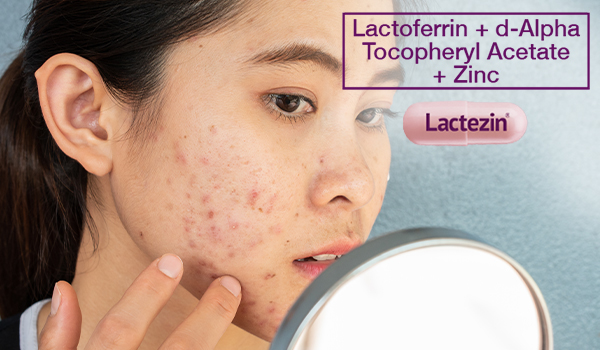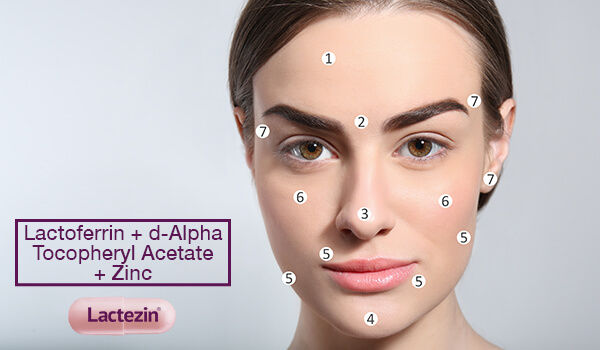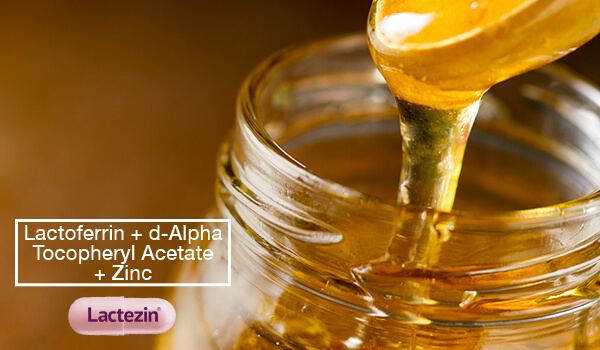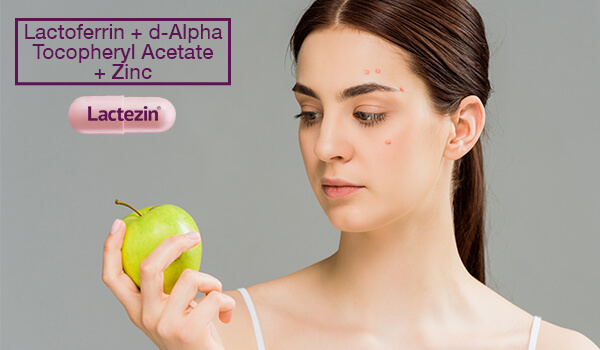Adult Acne: 5 Causes and Treatments

As an adult, you have a lot to manage: work, bills, responsibilities at home, and so much more. And as if that’s not challenging enough, you may have to deal with skin conditions like adult acne too.
It can be incredibly frustrating, having to deal with acne as a teenager and waiting until your twenties or thirties to finally have clear skin— only to learn the hard way that acne does not necessarily end when your teenage years do. Coming to terms with breakouts during adulthood is challenging, but rest assured, you’re not the only one dealing with it and yes, it can be managed.
Clinical studies show that around 40-55 percent of adults aged 20-40 are diagnosed with low grade, persistent acne as well as oily skin.
Women also tend to get adult acne more often than men. Another study revealed that 54 percent of women above the age of 25 experience some facial acne.
Knowing what causes your pimples can help you clear up your skin and keep acne at bay. Read on to learn about the common causes of adult acne and what treatment methods are available.
What are the common causes of adult acne?
Acne occurs when your pores become clogged with oil, dirt, dead skin, and bacteria. This buildup results in swelling, or pimples. But acne is a complex skin condition and other factors can come into play, causing you to break out or exacerbate your acne.
In some cases, just having good skincare habits like cleansing or exfoliating on the regular can be enough to prevent acne. For many others, however, the situation may be more complicated and require a different approach.
Here, we look at the possible reasons why you may be breaking out in your adult years:
Stress
Stress is unfortunately very common among adults, what with all the responsibilities we have to deal with at work, at home, and emotional events we can’t predict. When the stress button is triggered, the adrenal glands produce cortisol, which is known as the stress hormone. Research says cortisol can be produced in hair follicles and in various types of skin cells. Cortisol causes an imbalance on the skin, leading to acne.
How to manage: It’s important to manage stress levels as this worsens the overall skin condition. A way to keep stress levels low is to get enough sleep and exercise.
Birth Control Pills
For women who take birth control pills, it can go either of two ways: sometimes it can help improve your skin, sometimes it can cause you to break out. Birth control pill works by changing a woman’s hormone levels to prevent pregnancy or relieve menstrual symptoms. They contain estrogen, which helps reduces the amount of testosterone in your body. With less testosterone, your pores produce less oil (sebum) which reduces the likelihood of blocked pores that cause acne formation. Once you start using birth control, it can take some time for your body to adjust to the new hormone levels. One drawback is that your acne may flare-up.
Results can be relative, which is why at the end of the day, regardless of age, you still need a good skincare routine.
How to manage: Be informed of the side effects of the pill you’re taking, and take note of how your body responds to it. Talk to your doctor about alternative treatments if you experience side effects like breakouts from your birth control pill.
Existing health conditions
For some, acne can be a physical manifestation of a health condition they already have. One example would be older women with PCOS (polycystic ovarian syndrome), which is characterized by irregular periods and weight gain. Often, PCOS also causes acne because of hormonal fluctuations. Plus, if you are being treated with medications that contain corticosteroids, lithium, or androgens, there’s a possibility of having acne as a side effect.
How to manage: If your birth control pills are making your acne worse, talk to your doctor about possible alternatives.
Lifestyle
Without even realizing it, sometimes it’s the things we do on a daily basis that cause acne or make it worse. Lack of sleep, in particular, is a major culprit because it denies the body to heal naturally. In the same way, smoking depletes the body of nutrients needed to boost the skin’s immunity. Excessive alcohol intake also dehydrates the skin, making it prone to acne and skin aging.
How to manage: Maintain good sleeping habits. Avoid smoking and excessive drinking. Incorporate healthy habits like exercise and drinking water into your daily life.
Diet
What you eat affects your health, and that includes your skin. Though not much has been written about it, there have been claims that excessively sugary and oily foods trigger skin breakouts like acne. This is especially true when glycation happens. This is when excess sugars in the skin link to skin proteins like collagen and elastin fibers. The result: collagen and elastin fail to function normally. Skin loses its regenerative and healing ability, leading to acne and skin aging.
How to manage: Make sure you get plenty of fruits and vegetables and drink 6-8 glasses of water daily. If you are already acne-prone, you may want to avoid sugary and starchy foods such as white bread, cookies, and sugary desserts.
Take Lactezin for acne
Along with a healthy lifestyle, taking oral acne medication such as Lactezin may also help with pimples. Lactezin contains a formulation of natural ingredients such as Lactoferrin, Vitamin E and Zinc that may help treat pimples and may also keep them from recurring. Learn more about how Lactezin works.
If symptoms persist, consult your doctor.
ASC Ref No. U088P031521LS
SOURCES:
none


